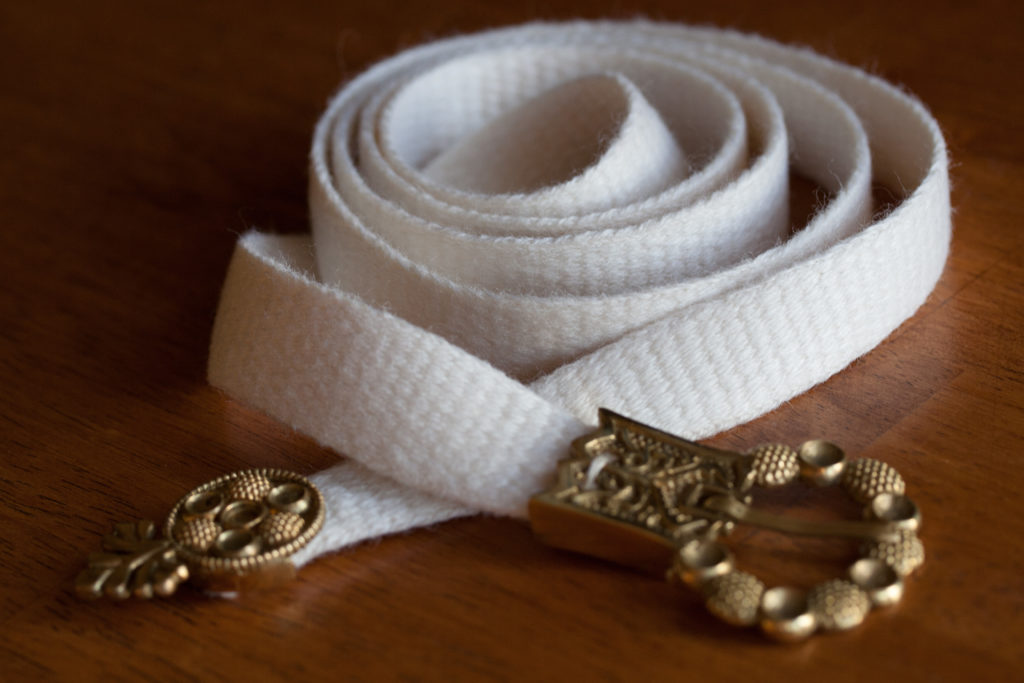Yesterday at Estrella War, a lady who inspires me was elevated to the Order of Chivalry. I wanted to give her something appropriate to her new status, so I decided to weave her a belt. My goal was to create a monochrome belt with subtle decoration.
I was intrigued by a monochrome checkerboard ground weave pattern described by both Collingwood1 and Spies2. That pattern was used on some medieval silk bands between sections of brocade. Unfortunately, the checkerboard pattern didn’t really work well with the laceweight wool yarn I was using. I scaled down the number of cards until I ended up with the following:
For the pattern cards (all but two on each side), turn 2 forward, 2 back.
Turn the four edge cards (two on each side) in the same direction until too much twist builds up, then reverse them.
The resulting band is about 3/4″ wide and has a texture that’s visible even with the slight fuzziness of the wool.
Congratulations, Sir Adrien!

